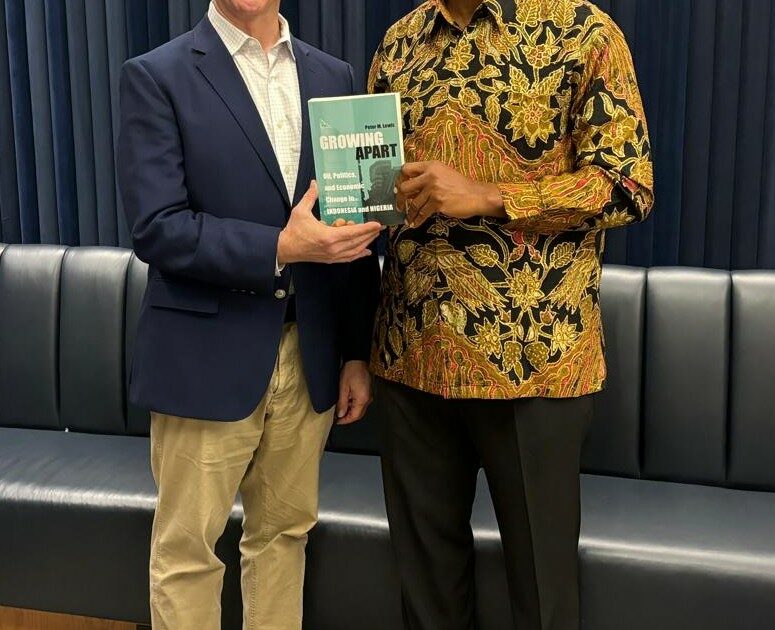Peter Obi, the Labour Party’s presidential candidate in the 2023 Nigerian elections, delivered a compelling lecture at Johns Hopkins University, dissecting the factors responsible for Nigeria’s stagnant growth and escalating poverty. He posited that the root cause lies in the persistent failure of political leadership over the years. Obi compared Nigeria’s developmental trajectory over the past 35 years with countries like China, Indonesia, and Vietnam, highlighting the stark contrast in their progress. While these nations have ascended to higher categories of human development, Nigeria has regrettably regressed, falling into the low category. This decline, he argued, is a direct consequence of the leadership’s inability to implement effective development-oriented policies. He stressed the critical role of competent, capable, and compassionate leadership, emphasizing that such leadership is essential for achieving sustainable growth and development.
Obi’s lecture underscored the gravity of Nigeria’s economic situation. Citing data, he demonstrated how Nigeria, once boasting a higher GDP per capita than China and Vietnam in 1990, has now dramatically fallen behind. While Nigeria’s GDP per capita stagnated, these other nations experienced significant economic growth, leaving Nigeria trailing in their wake. He pointed out that Nigeria’s current per capita GDP is a mere fraction of Indonesia’s and Vietnam’s, and even less compared to China’s. This alarming economic disparity, he argued, is a direct result of the failures of successive Nigerian governments to prioritize investment in crucial developmental areas such as education, healthcare, and poverty reduction. He contrasted this with the focused approach of the other nations, where leadership prioritized these areas and consequently witnessed substantial economic progress.
The lecture also highlighted the devastating impact of poor leadership on poverty levels in Nigeria. Obi revealed a distressing statistic: Nigeria now has more people living in poverty than China, Indonesia, and Vietnam combined. This stark reality paints a grim picture of the human cost of leadership failure. While China, for instance, made significant strides in poverty reduction since 1990, Nigeria has seen its poverty rate soar. Obi attributed this devastating trend to the lack of commitment by Nigerian leaders to implement effective poverty alleviation strategies. He emphasized the crucial role of leadership in prioritizing the needs of the most vulnerable citizens, arguing that a lack of such focus inevitably leads to escalating poverty levels. His analysis underscored the urgency of addressing this critical issue and the need for a paradigm shift in leadership approach.
Obi’s lecture offered a comparative analysis, examining the distinct approaches to governance adopted by Nigeria and the other three nations. He argued that the key differentiator lies in the quality of political leadership. While China, Indonesia, and Vietnam have benefited from competent leadership characterized by integrity, capacity, and compassion, Nigeria has unfortunately been plagued by leadership that lacks these crucial qualities. He emphasized the importance of leaders who are committed to serving the people and prioritizing their well-being. He contrasted this with the self-serving nature of many Nigerian leaders, whose actions often exacerbate the nation’s challenges rather than addressing them. This comparative analysis served to underscore the vital role of leadership in shaping a nation’s destiny.
Obi’s central message was a call for a fundamental shift in Nigeria’s leadership landscape. He emphasized the urgent need for leaders who possess the vision, competence, and commitment to drive sustainable development. He stressed the importance of prioritizing investments in key areas such as education, healthcare, and poverty reduction, arguing that these are essential for unlocking Nigeria’s vast potential. He contrasted this with the current situation, where resources are often mismanaged or diverted, leading to underdevelopment and widespread poverty. He called for a new generation of leaders who are dedicated to serving the people and building a prosperous future for Nigeria.
Despite the bleak picture he painted, Obi concluded his lecture on an optimistic note. He expressed unwavering belief in Nigeria’s potential for transformation and reaffirmed his commitment to working towards a better future for the nation. He emphasized that meaningful change is achievable with the right leadership and the collective will of the people. His message of hope resonated with the audience, inspiring a renewed sense of optimism about the possibility of a brighter future for Nigeria. He declared, “A New Nigeria is POssible,” encapsulating his vision for a nation that is prosperous, equitable, and just. His lecture served as a powerful call to action, urging Nigerians to demand better leadership and to work together to build the nation of their dreams.














